![[rec.] Nicholas P. Roberts, Political Islam and the Invention of Tradition, New Academia Publishing, Washington, DC 2015, ss. 245](/api/image/getissuecoverimage?id=picture_2017_43064.jpeg)
We kindly inform you that, as long as the subject affiliation of our 300.000+ articles is in progress, you might get unsufficient or no results on your third level or second level search. In this case, please broaden your search criteria.
![[rec.] Nicholas P. Roberts, Political Islam and the Invention of Tradition, New Academia Publishing, Washington, DC 2015, ss. 245](/api/image/getissuecoverimage?id=picture_2017_43064.jpeg)
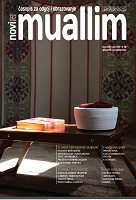
The issue of gender equality in general, and the issue of the human dignity of women, in particular, represent the ground point for any activity in the sphere of the emancipation of women. The definition of this issue is a premise for attaining the human rights of which women are deprived. Keeping this in mind, all the efforts directed towards the emancipation of women amongst Bosniaks have also triggered the issues of the value of women in regard to men and the attitude of Islam towards women in general. In this context, many Bosniak scholars have based their opinions on gender (in)equality upon the Qur’anic ayahs. This article offers a review of the writings of Bosniak scholars about gender equality, along with the interpretation of the Qur’anic views that they used to support their opinions in this regard.
More...
This article presents a quite neglected interpretative tradition within the Islamic philosophy – the Ottoman perception of the debate between Abu Hamid al-Ghazālī and the philosophers. It first discusses the negligence of the Ottoman intellectual contributions in general, i.e. its historical background, and then it moves to the discussion about the above-mentioned tradition which was initiated by sultan Mehmed II. Then it analyzes the long chain of commentators who wrote critical insights into earlier discussions about philosophical achievements. Then the article offers a more specific review of the commentaries of Hojazadeh and ‘Ala’uddin at-Tusi, and their critical views of al-Ghazālī. It also points out the complete absence of the mention of Ibn Rushd in these discussions. The Ottoman authors did not base their views on mere acceptance of al-Ghazālī’s arguments, but rather they pointed out his insufficiently substantiated views and criticized contradictions in his arguments when found. Their primary goal was not to establish the new philosophic systems, but rather to have a more thorough approach towards understanding and expanding the existing ideas.
More...
The present article aims to research the manuscripts of Shatibiyyah and the relevant commentaries of the same that are found in the archives of Ghazi Husrev-bey Library in Sarajevo. As a result of this research, we found the answers to some important questions like: Why is the study of the seven mutawatir qiraats, rather than ten mutawatir qiraats, more common practice in Bosnia and Herzegovina and why is it that Shatibiyyah is given preference and used as the most common source for the study of qiraat here? This endeavour brought to our knowledge some data about the first qurra hafiz in Bosnia and Herzegovina. We also present here some views of the present condition regarding the study of Shatibiyyah and the qiraats of the Qur’an-e- Kareem in Bosnia and Herzegovina.
More...
Despite all the research so far, the experience of Bosniaks during World War II is still not sufficiently known. Only in the last few years, the theses have appeared that along with the known Muslim resolutions of 1941, there was also the Višegrad Resolution. One of the larger drawbacks of the research so far is that it was based on secondary sources rather than on the original texts. The same is the case with the issue of the existence of the Višegrad Resolution. The author here briefly describes the circumstances that preceded the bringing of the Višegrad Resolution and then presents its entire text.
More...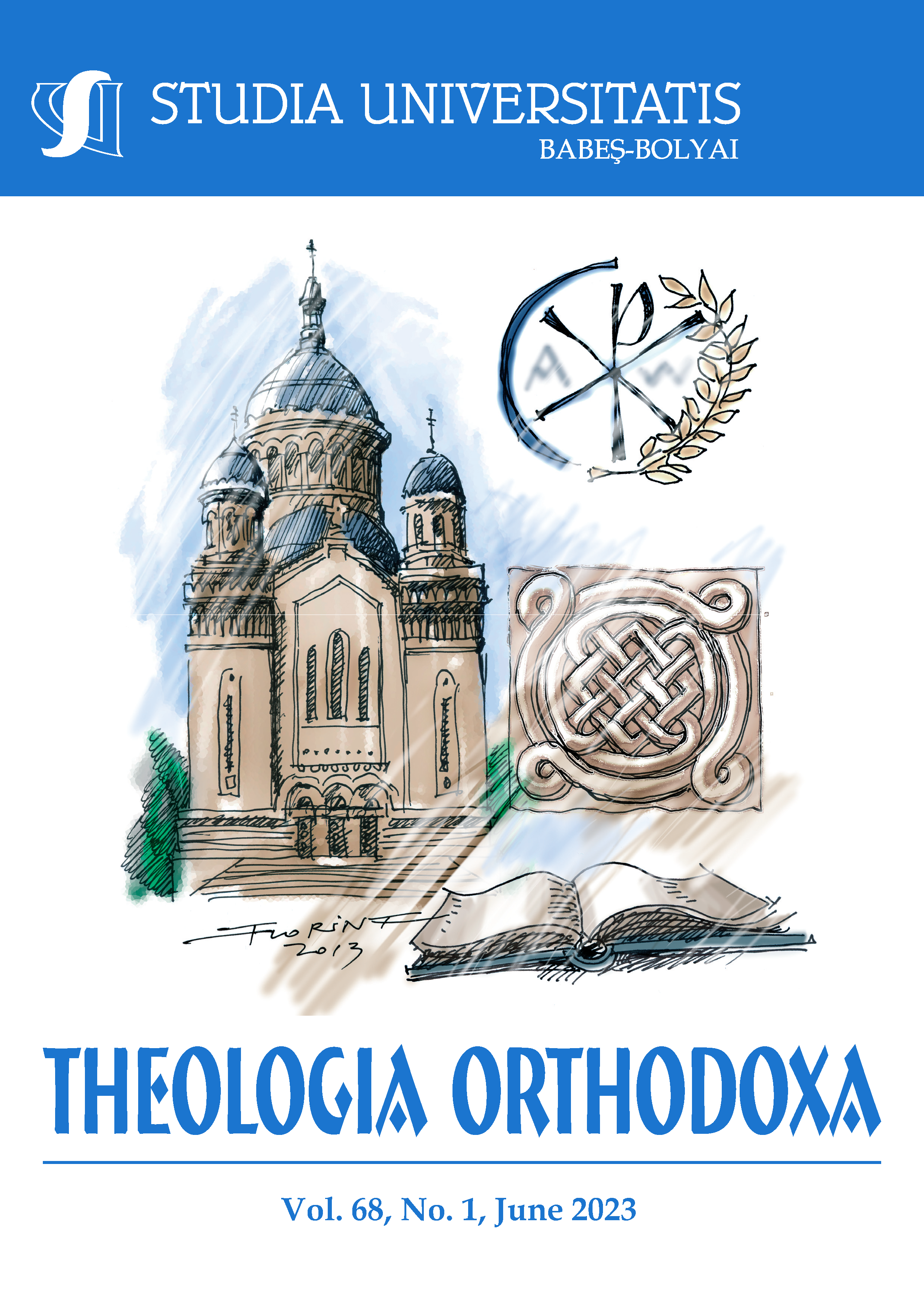
The christianization of Muslims turned upside down the one-way logic of religious conversion under Ottoman rule, which dictated that a non-Muslim (Christian or Jew) could become a Muslim, but a Muslim could not abandon their faith. The conversion of Muslims to Orthodox Christianity constituted thus an act of defiance of Ottoman political order, and the converts were exposed to the charge of apostasy that could cost them their lives. Given the above, it is not surprising that abandoning Islam for Christianity was a marginal phenomenon; it occurred either outside Ottoman territory or after losing an Ottoman region to a Christian state. However, the period between 1730 and 1820 saw the emergence of a particular form of Christianization that was a double conversion; namely, the public renouncement of the Muslim faith by Christian converts to Islam who proclaimed their return to Christianity wishing to wash out the sin of apostasy with an atoning death. Several of them were executed and were hailed by Greek-Orthodox subjects of the sultan as martyrs for the faith. In this study I analyze the dynamics of double conversion from three points of view: that of the makers, that is, of those who promoted reconversion to Christianity at the price of death, provided it with a theoretical framing, and formed networks of training and support for the double converts; that of the actors, namely, of the double converts themselves, of their social backgrounds, and of the reasons behind their fatal decisions; and that of the public, of the various social groups and individuals who witnessed this liminal form of conversion, assessed it and responded to it. The interpretation endeavours to shed light on a radical aspect of Greek-Orthodox confessionalization at a time of intense sociocultural conflict and political upheaval, and to highlight the complexity of responses to, and instantiations of, modernity.
More...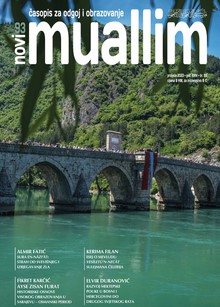
This article analyses the legacy of Professor Dr. Fikret Karčić at the Institute for the Islamic Tradition of Bosniaks. He contributed his efforts to its foundation as well as to its revitalization in the year 2013 and actively participated in the functioning of its Scientific Council in two tenures in the period 2013-2021. The article focuses on his contribution to the formation of scientific departments of the Institute and to the general orientation of the functioning of the institute. The participation of Professor Karćič in the activities organized by the Institute is also analyzed here.
More...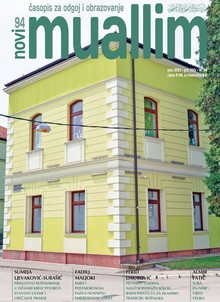
The modern world we live in shows a growing tendency in profiling social phenomena and providing scientific explanations for their emergence. This tendency is directed at finding a discipline and the scientific field for almost all the possible challenges in life and all human relations which determines it, analyses it empirically, and provides a framework for its development. In this sense, managing and directing people, which in the past could have been viewed as a form of one’s intuition, as one’s inborn or acquired skill for working with people, is today established on the bases of clearly pre-set parameters and standards which need to be achieved in order to establish a functional process of management. The Western world has developed significantly in this regard, whereas for Muslims, speaking in a broader social context, this idea is relatively unknown, and the present condition of Umma is in such a state wherein any systematic organization of human potentials is not likely to evolve in the perceivable future. The author here tries to stress that religious teachings can not be the reason for such a state, because the Messenger s.w.s. himself has set an example of good management of human resources, especially in some critical circumstances. He thus endowed Muslims with a normative paradigm in this regard. Thus he here discusses the leadership competencies of the Messenger s.w.s. through the accounts of a battle of crucial significance, i.e. the Battle of Badr.
More...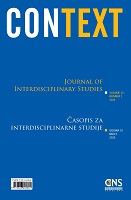
Review of: Muhammad Shafiq i Mohammed Abu-Nimer, Međuvjerski dijalog: vodič za muslimane, s engleskog prevela Azra Mulović, Sarajevo: Centar za napredne studije, 2018. 207 str., ISBN 978-9958-022-95-1.
More...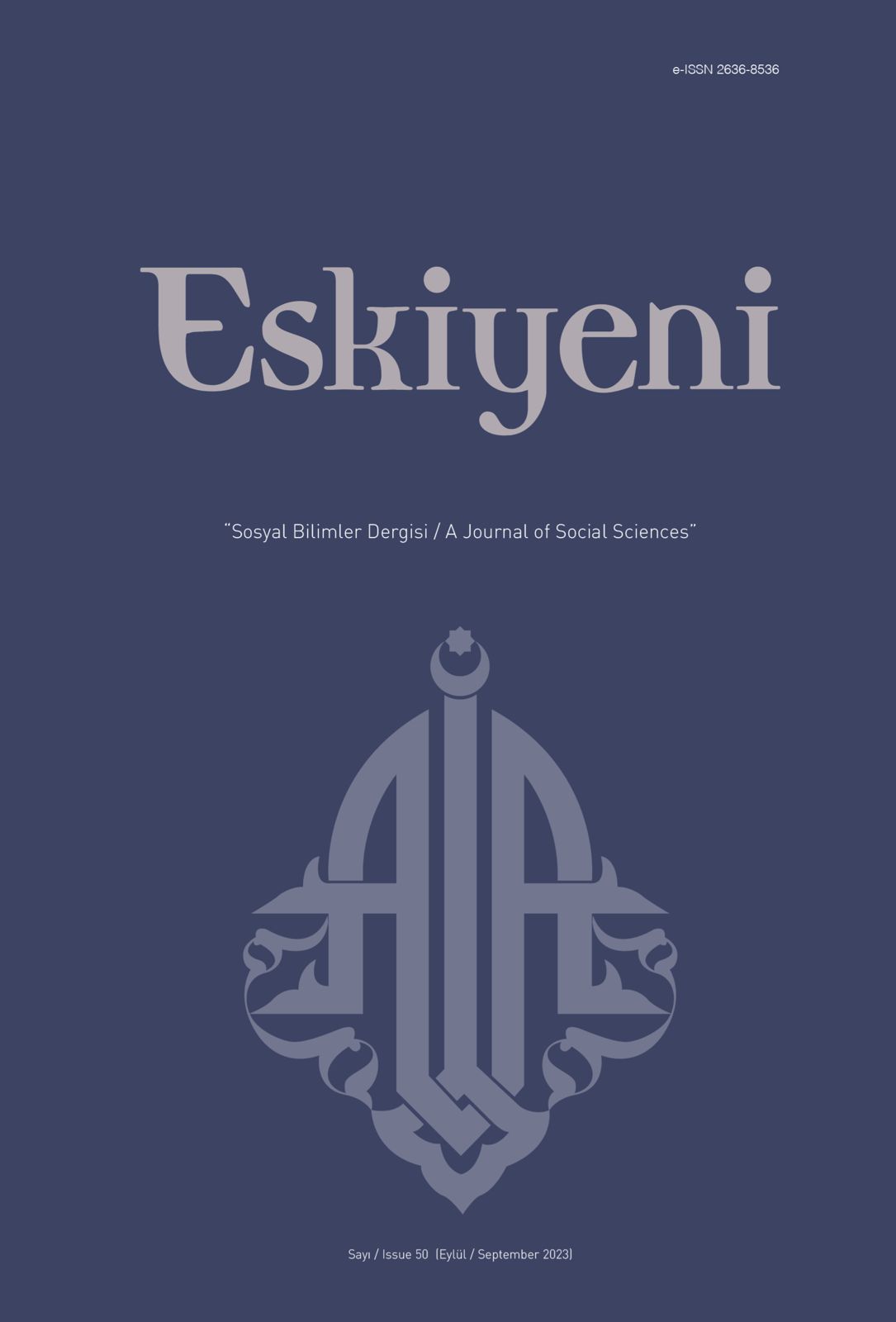
This essay seeks to shed light on the fresh line of inquiry Fazlur Rahman has opened for us. His invitation has the following main justifications: 1) As long as Islamic thought concentrates on the historical forms of religion, i.e., Islam is reduced to its early historical forms, then its universal messages stay in the shadowy areas behind the forms. To find those messages that essentially that transcend historical forms, a new field of thought needs to be established. 2) Contemporary thought tends towards secularism, that is, atheism. Consequently, this new field of thought is required to save contemporary man from atheism. 3) Islamic tradition has a rich intellectual history, but it has lost the ability to discern the Qur'an's overarching meanings (messages). Therefore, we must introduce this new field of thought in terms of a strong methodology that simultaneously unearths the messages and gives us a critical viewpoint on Islamic heritage. Islamic tradition lacks a clear space or vantage point from which to conduct self-critique.In order to conceptualize the crises in traditional and modern thought and to give the world a new opportunity to provide a solution for them, Fazlur Rahman obviously views this new field of thought as essential. In other words, the new field of thought should be a field that is not subject to or reproduces these crises. If this is the case, where is the new field of thought that can rescue us from the dilemma that modern secularism and Islamic tradition face? Fazlur Rahman argues that it is within his methodology that the new field of thought can be opened that will take us out of the Islamic tradition, which has been damaged by both secularism (atheism), rigid formalism and non-Islamic influences. This unbiased approach to the historical context of revelation can help us understand the relationship between early religious forms and their overarching teachings (messages). Then, we can view these messages as the general goals or aims of the Islam, enabling us to come up with original solutions to the issues facing the present world. He considers that the Qur'an itself provides us with this creative thinking.
More...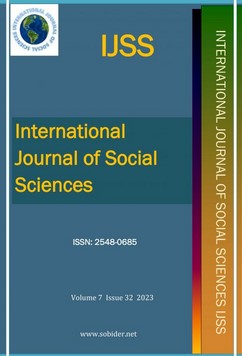
With the acceptance of Islam by the Turks, serious differences have been observed in Turkish literary activities starting from the XI and XIIth centuries, Literary movement called "Divan literature", which developed under the influence of Arabic and especially Persian literature in the early periods, appeared. Since Divan poetry is a literature that is based on the Islamic religion, the influence of other religions and cultures, which entered into the religion of Islam and which we call Isrâiliyyat, inevitably has made itself felt in this literature. The parables of the Prophets made up a rich material for Divan poetry and has become referenced sources frequently by Divan poets. The creation and life story of Prophet Adam, who is accepted as the first human being in all Abrahamic religions, also attracted the attention of Divan poets, and narrations about him were frequently used in couplets. In this study, the narrations about Hz. Adam in Divan poetry has been analyzed and these narrations have been compared with the verses in the Qur'an in which Hz. Adam is described. As a result of this comparison, the narrations that do not have a reference in the verses or contradict the verses are considered within the realm of Isrâiliyat.
More...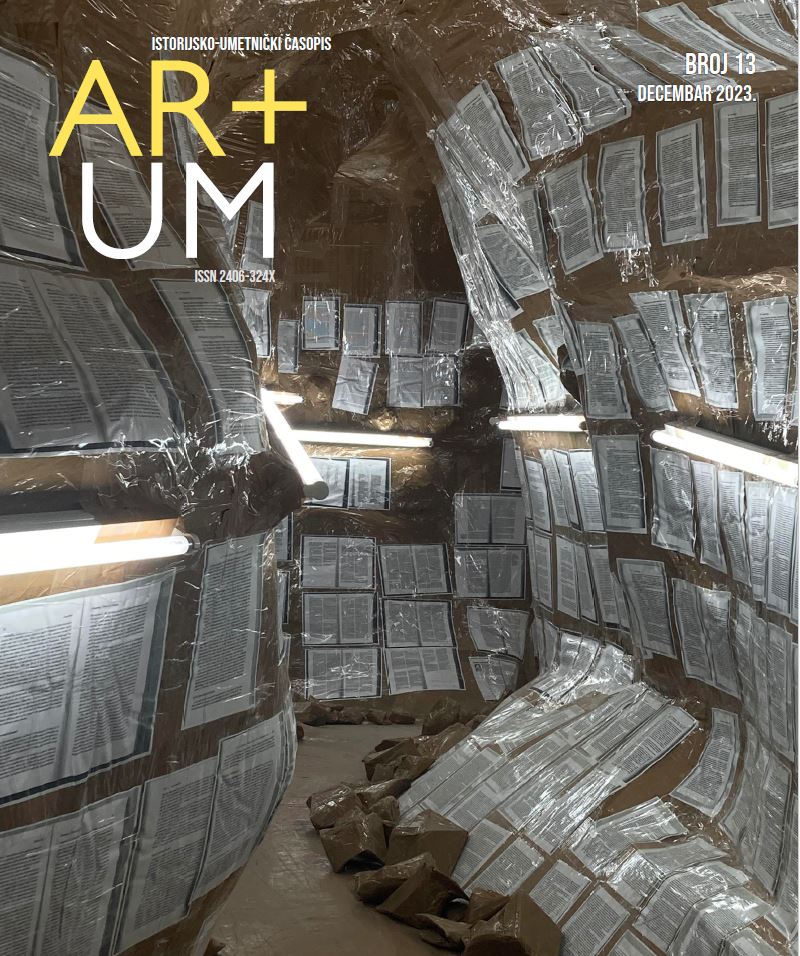
The aim of this paper is a more detailed analysis of Ibn Tulun’s Mosque in Cairo, with a particular focus on the symbolic and historical significance of architecture generally applicable to all mosques. Additionally, the paper aims to highlight the distinct architectural elements that make Ibn Tulun’s Mosque unique within the context of early Islamic art in Egypt, as a result of the specific historical and political circumstances under which it was constructed.
More...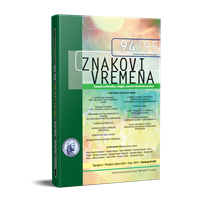
In this work we will treat the issue of freedom in its ontological aspect, as a category immanent to man which finds its true realization through man’s relationship to the transcendental. That relation implies the inward consciousness and freedom of will in submission to God in every state which corresponds to the degree of metaphysical dismantling (tajrīd). If man is in every state of his being turned towards only one God, he transcends the plane of ritualistic uniformity, which, also, presents one aspect of non-freedom. Man at the degree of Tajriid is freed from inside and he expresses his individual experience of God’s presence in his own being in his unique and personal way, and authentic dialogue with God, just like in the story of the Messenger Moses and the shepherd. In that measure in which man is more alert and open to plunging into his own transcendental infinity, he is spiritually awakened, which is a foundational, precondition for the attainment of true freedom.
More...
Review of: John Renard Historical Dictionary of Sufism, Scarecrow Press, Inc., USA, 2. izdanje, 2005.
More...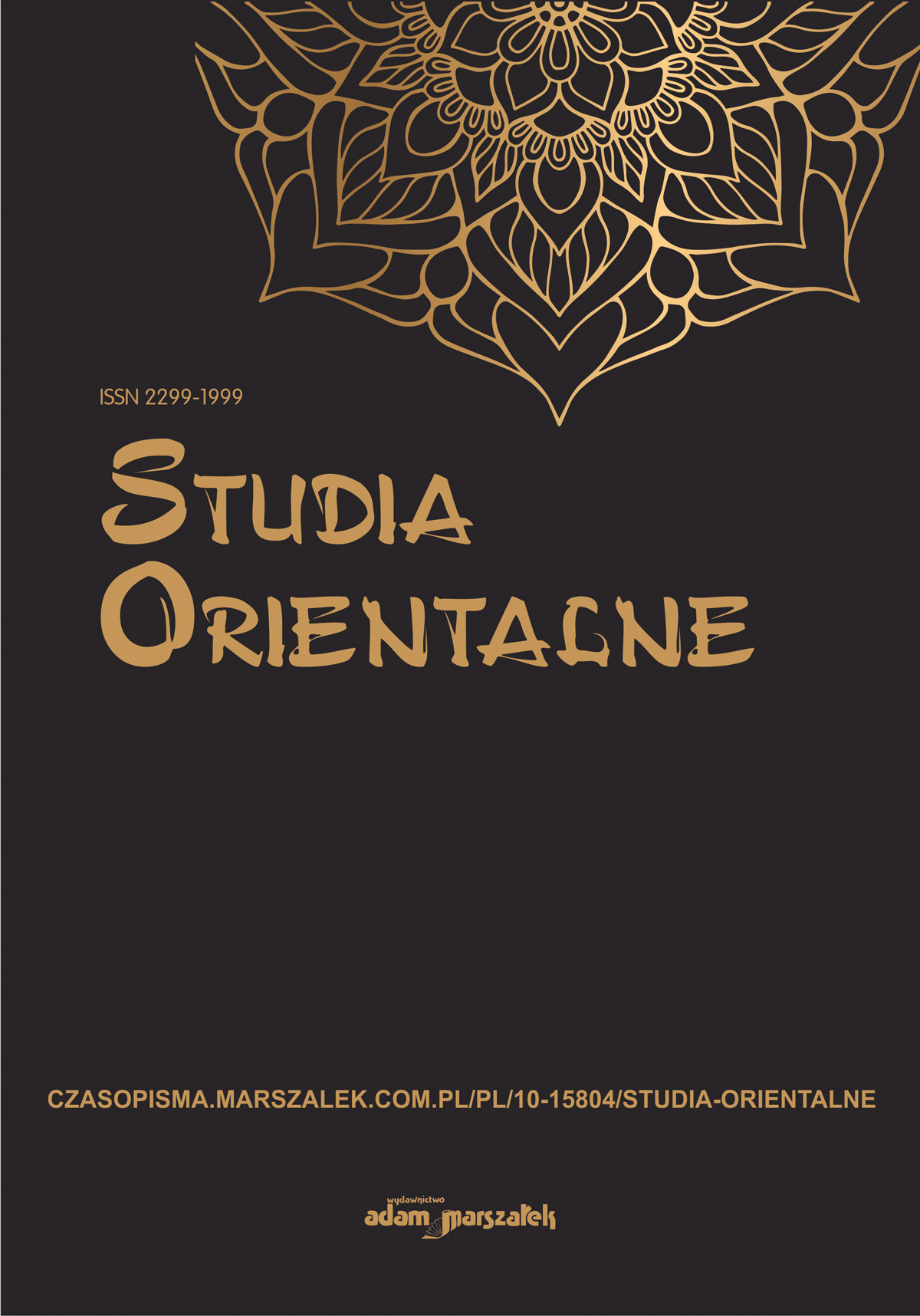
This article concerns the medicine of the Arab world during its heyday from the Prophet Muhammad to the beginning of the 13th century and the emergence of European research centers. During the golden age of Islam, the medicine of this period developed rapidly. At that time, many therapies and drugs were created, used in a slightly changed form to this day. Without them, there would not be many discoveries in diseases, epidemics, surgeries, anatomy, dietetics, ophthalmology, or therapies. The article aims to show a cross-sectional division of medicine in the Islamic world from the 7th to the 13th century, outlining the most important achievements in this field.
More...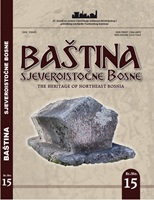
This paper will describe a part of the family tree of the Ćerimagić family, describe the legends related to the lives of individuals in the family, the relationship with the Brčko families Kučukalić and Bukvica and the legend related to the key to the sehara containing beard hair, which is traditionally found in the people believe that it belonged to Muhammad. According to tradition, the key is inherited by the male line from Mehmed-beg Ćerimagić, who was among the first generations of Muslims expelled from Belgrade, and who together with the Muslims expelled from Užice and Šabac founded Orašje. Mehmed-bey is mentioned as a descendant of Abdul-Kerim-aga, ie his son Mir Ahmet, who was a clerk in Belgrade under Topal Osman Pasha, and the first "chief" of Orasje after its formation. He buys his hair from an unknown Arab when he goes on a hajj to Mecca and brings it to Orašje. After the death of the last male member of the Ćerimagić family, ie Ahmed-Bakir, the key to the sehara is inherited by the oldest male child of his sister Aiša-Pasha. The Ćerimagićs were an exemplary family, achieving a certain kind of connection with various structures in the then Ottoman Empire. Later, they maintained trade, family and ties of various kinds. The family also had good relations with several prominent families from Brcko, including the Kučukalić and Bukvica families. Avnija hanuma Ćerimagić marries the eminent doctor Abdulah Bukvica, and her sister Nafija hanuma marries the famous Abdaga Kučukalić, the son of the famous benefactor, waqif and patron Alijaga Kučukalić. Both stand out as cultural activists and participate in the work of Gajret and the Brčko society Islahijet.
More...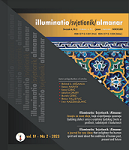
This paper tries to penetrate into the merits of Islamic civilization in promoting the progress of humanity and the causes of the decline and withdrawal of Islamic civilization from the global cultural and political scene. The basic thought is that neither the meek nor aggressive civilization has ever ruled the world, but the world has always been ruled by cooperative civilizations, of which the Islamic civilization can serve as a proven historical example of civilizational cooperation. Therefore, the author claims that the recovery of Islamic civilization is neither in isolation nor in assimilation, but in the affirmation of civilizational values, which are common to all mankind.
More...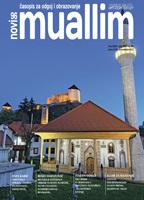
In the initial part of this article, the author introduces basic information about the performance, the beginning and completion, application of the Teaching Plan and Programme and the textbooks (‘Ilmihal) used by the maktab class of the Islamic Community of Bosnia and Herzegovina in the academic year 2023/2024. Further, he presents information about the organisational units of the Islamic Community, meshihats, and umbrella organisations of the Islamic community of Bosniaks in the diaspora which initiated and carried out the process of modifications of the Teaching Plan and Programme of the maktab for their region, he then relates of bilingual textbooks used in respective countries. In the second part of the article, the author highlights the role of the individual bodies of the Islamic Community responsible for organisation, support, and supervision of the educational and upbringing process in maktab class. He also discusses both, quantitative and qualitative aspects of maktab class with regards to the number of attendants, volume of the teaching content, weakly and annual number of planned classes. In the central part of the article, the author elaborates on the significance of the role of makteb in supporting the family and parents in the process of upbringing children. He also points out the challenges facing the maktab class categorizing which are the same as general, specific, functional and administrative challenges. The article also offers some guidelines and suggestions for organisational and structural improvement of the maktab class in general and its promotion and support. In one part of the article, the author presents the model of the maktab centre and discusses its advantages, disadvantages and the challenges it faces. In the final part of the article, the author stresses the need to explore the possibilities for finding new sources of financial support for the maktab class and its promotion. Finally, he ends with an affirmative conclusion regarding the structural and organisational functioning of the maktab class.
More...
The authors here aim to present the outlines of the two financial systems. One is the conventional system based on interest, and the other is the Islamic system which prohibits interest (er-riba). The Islamic model prefers cooperation between entrepreneur and financier, known as “the ownership” model of financing. Islamic banking, as such, is a discipline of economy that studies rules, principles, and systems of banking. Types of financing and financing tools as well as the marketing of the banking services are also subjects of its interest.
More...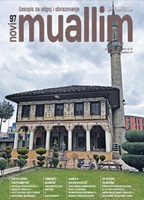
Glas Koncila, a weekly newspaper, is one of the leading religious printed media in Croatia, with a long tradition, a heritage of the written word preserved, primarily by the catholic theologians, church ministers or former church ministers of the Catholic Church in Croatia. Presenting Islam in one of the most influential religious printed media in Croatia may contribute to creating a positive or negative image of Islam and its values, which, in turn, may have an impact on the quality of the dialogue and lives and coexistence of religious communities in both, Croatia and Bosnia and Herzegovina. Keeping in mind the role of the media in the formation of attitudes and its influence on public opinion, the article presents here a short review of the content of interreligious dialogue between the Catholic Church in Croatia and the Islamic Community in Bosnia and Herzegovina and also of Islamic theology topics articles published in the Catholic weekly paper Glas Koncila in the period from the year 1991 to the year 2005.
More...